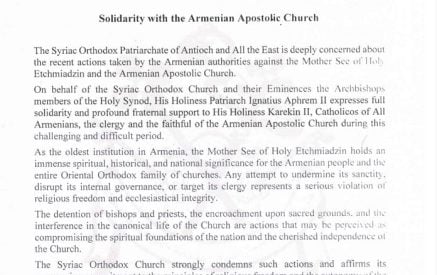Being non-constant inwardly is the prerequisite to influence on life
One of all virtues of the people that is evaluated the most is the person’s adherence to principle, inflexibility when the person is governed in different circumstances and different environments by the same and not contradicting principles, of course if they do not do any harm to the environment. Let me give you an example non-constant behavior. Imagine, a group of people is feasting, they share their pain, toasts and in the end, they kiss each other. Then, one from this group stands up and says, “I have to go, I have things to do,” the others are convincing him not to go but in the end, the man turns to the door, everyone stands up and kiss a goodbye in turn. When he leaves the room, the participants to the feast return to the banquet table and the following conversation begins, “Hey, who was he? Whom we are making friends with? Do you know what he did last day?” This is not our, the Armenians’ “national characteristics”, false and non-principled people are found everywhere.
To illustrate an example of constant character, let us return to the banquet table and listen to what “dear table-companions” are saying. “What has happened to this nation? This is not a nation, this nation must be burnt down, this country is not a country, everybody is leaving and I’m gonna flee too,” say the table-companions. Now imagine that I am sitting at this table and inwardly disagree but I add an accent to this conversation or shake my head or at best, remain silent. This will speak of my non-constant character. It would be better for me to say, “Certainly, it is up to you what to think or say but I just want to remind you that it is our nation and our country, therefore, whatever you say, tell it not in the third person but in the plural of the first person, we.” And since there are apparently unprincipled people sitting in front of me, they will immediately change the tone of their conversation, “No-no, I did not want to say this, our nation are good people (although, a while ago, he was saying that they must be burnt down –A. A.) but those sitting “up there”…
People sitting at the next table are running the following conversation, “Do you know what nation we have? When we existed, there were no other nations, we have a 2000 years old theater, the Brits are Armenians, Chinese are Armenians, Germans are Armenians, all nations are jealous of us, they steal all our songs and dishes.” Again, if I am not agreeing to this conversation do not contradict to it in any way, it will talk about the lack of my inflexibility. Actually, I must say, “Yes, our history and culture is rich but we do not have a basis for a separate arrogation because many of the nations that were on the trees 2000 years ago were able to establish normal states while we could not do it in 25 years.” Certainly, the most extreme case would be if I harmonize with the “orators” of the two tables.
Read also
Depending on the extent of how unanimous and non-contradictory my soul is, I can positively influence people. The Christian and Buddhist myths about that virtuous people, only with words, have managed to keep the most dangerous robbers back from their criminal way, does not seem to me so unlikely. But this requires having everything clean “inside”, devoid of the garbage of contradictions. Otherwise, it will become like the well-known joke, “Do what I tell you rather than what I do.”
… Almost all Armenians in Artsakh during the war become a citizen: solidary, caring, gathered and concentrated. The tension is gone and we again are getting involved in petty intrigues. In other words, we are unable to be guided by the same principle in all circumstances. Maybe this also speaks of our inconstancy.
Aram ABRAHAMYAN






















































